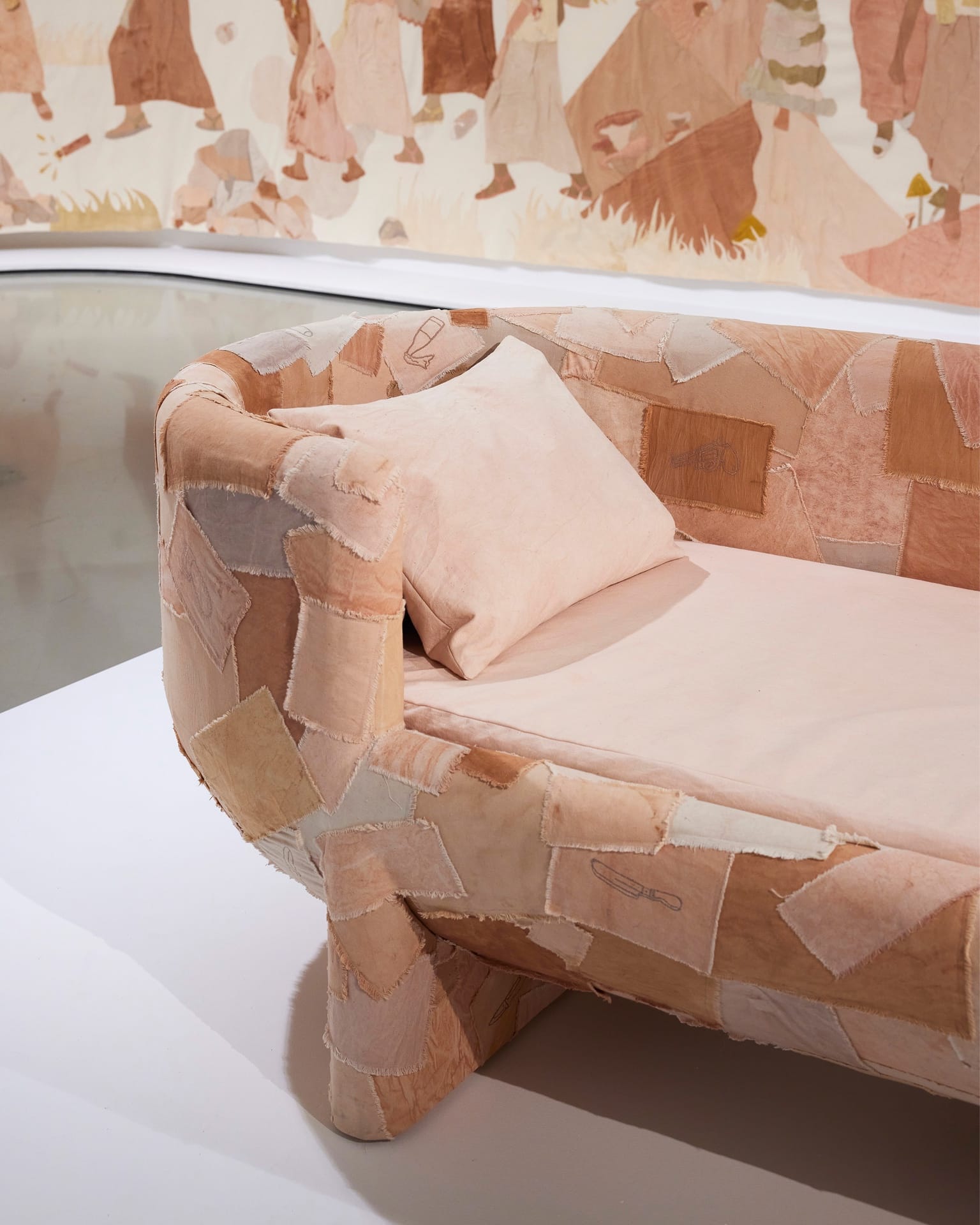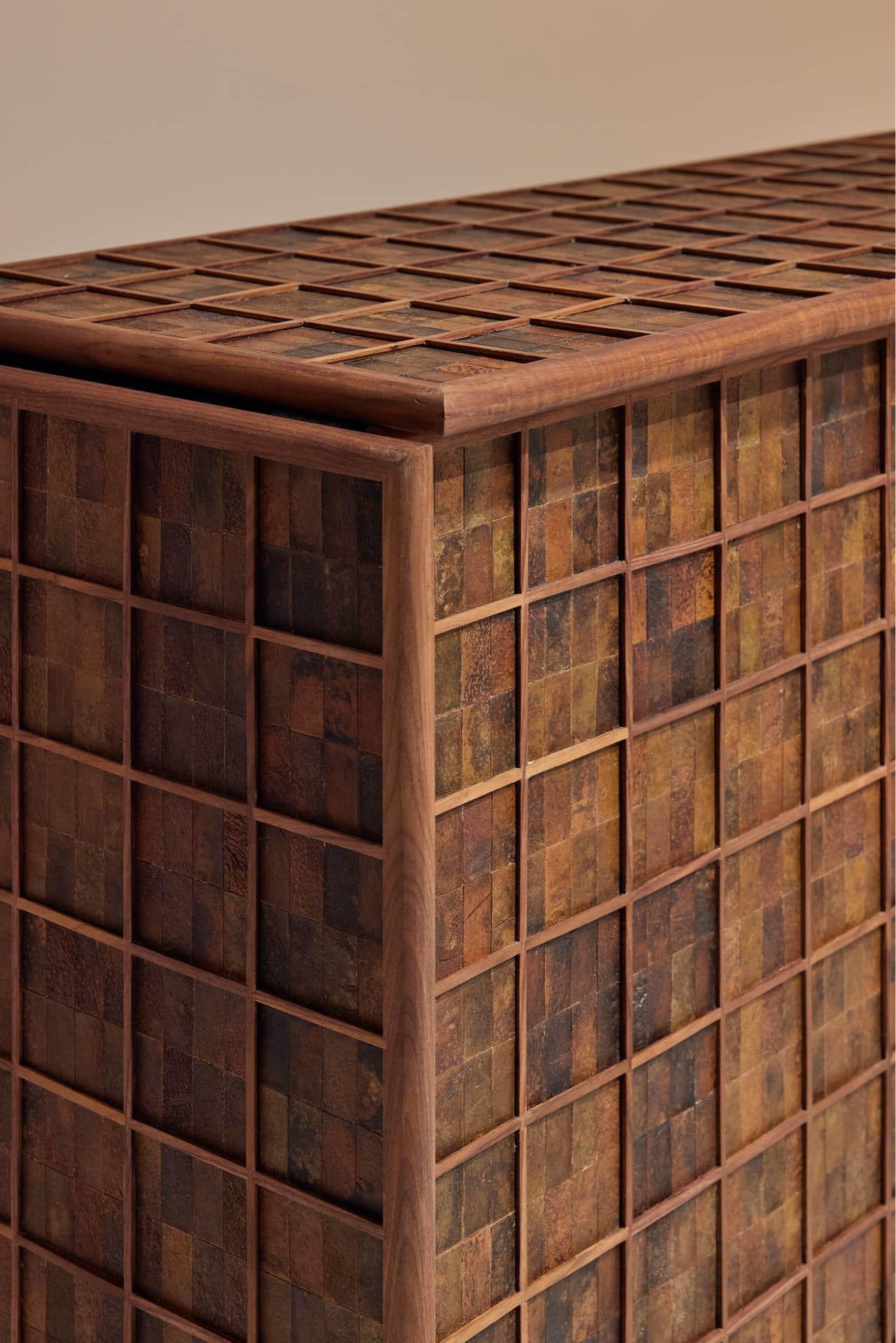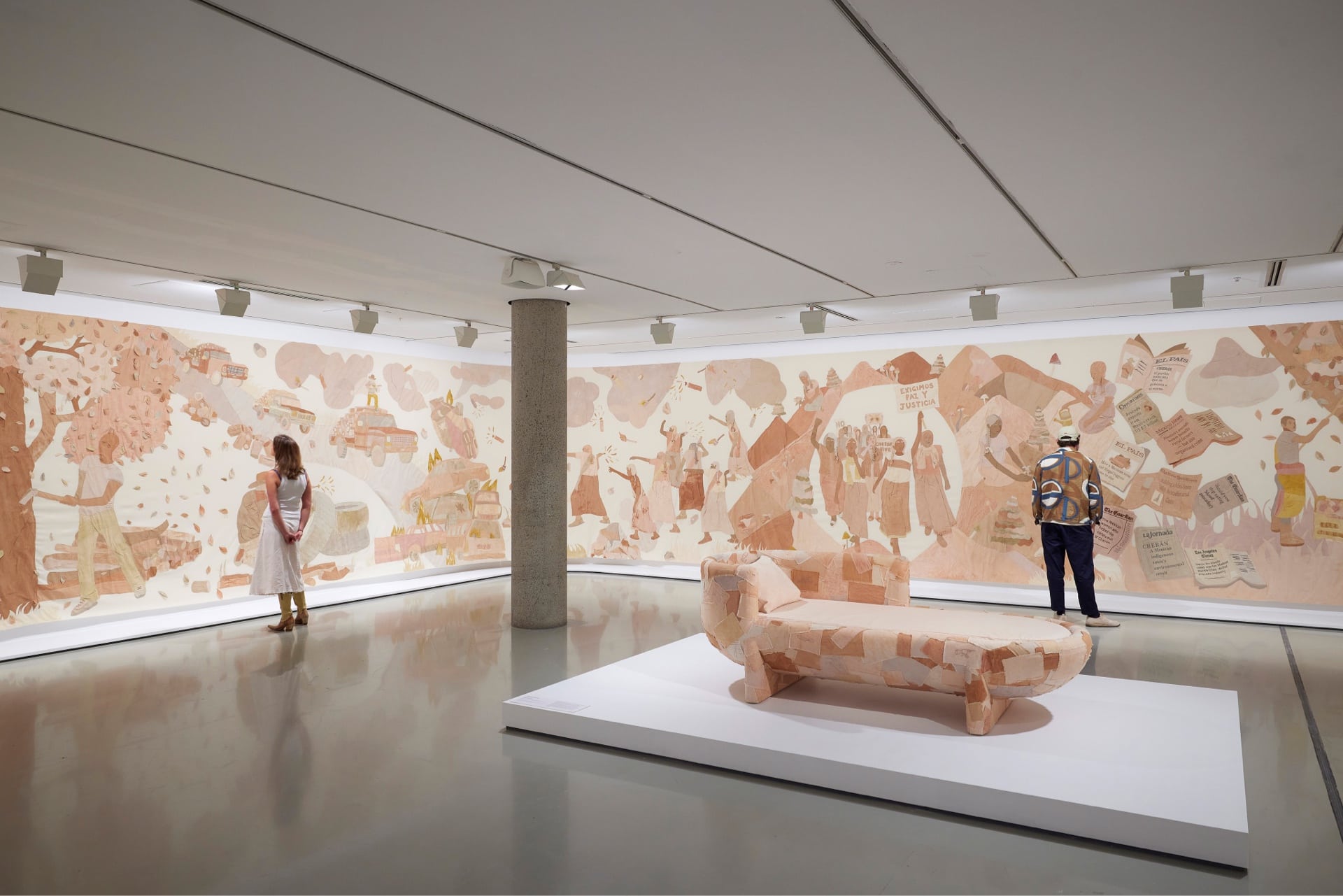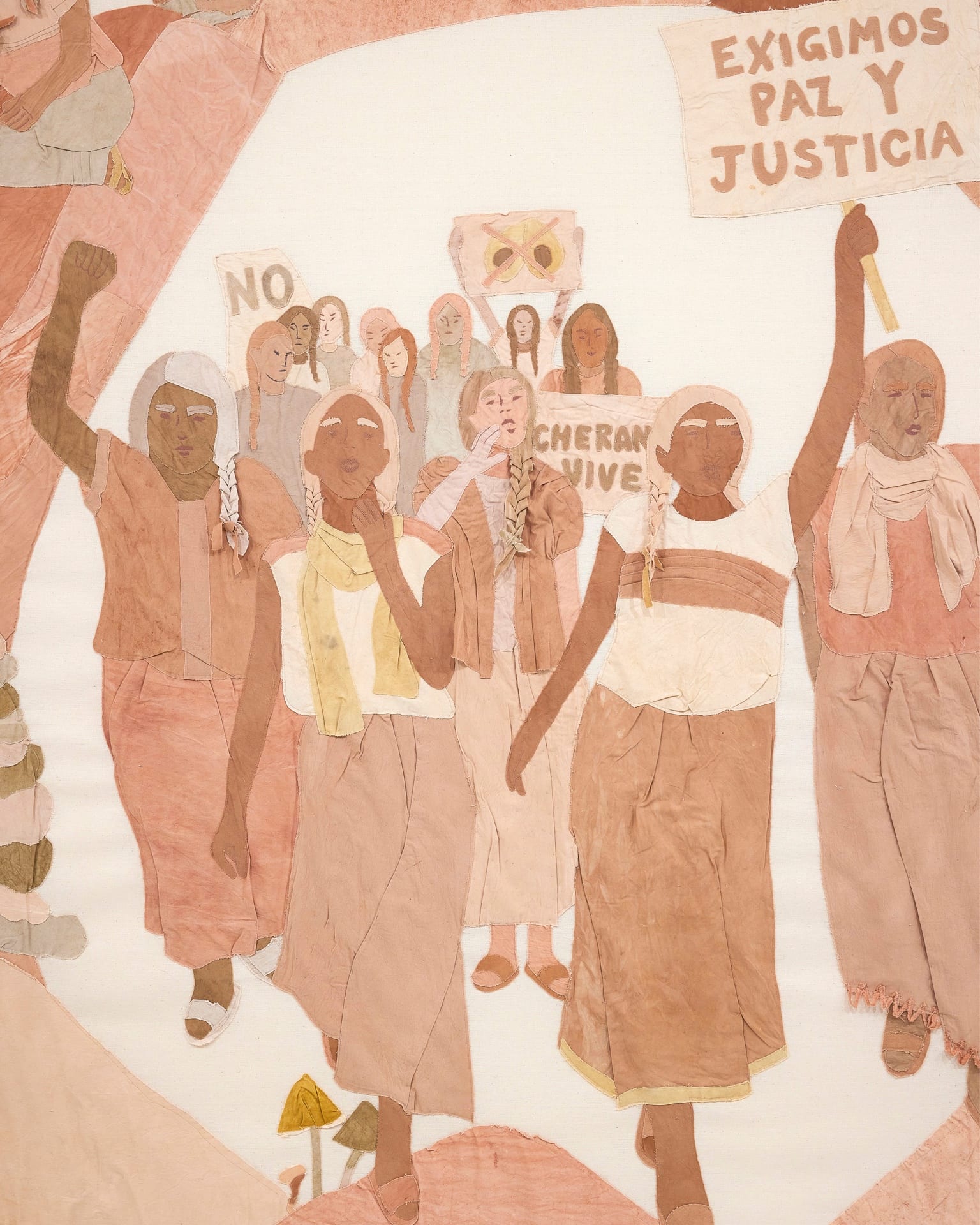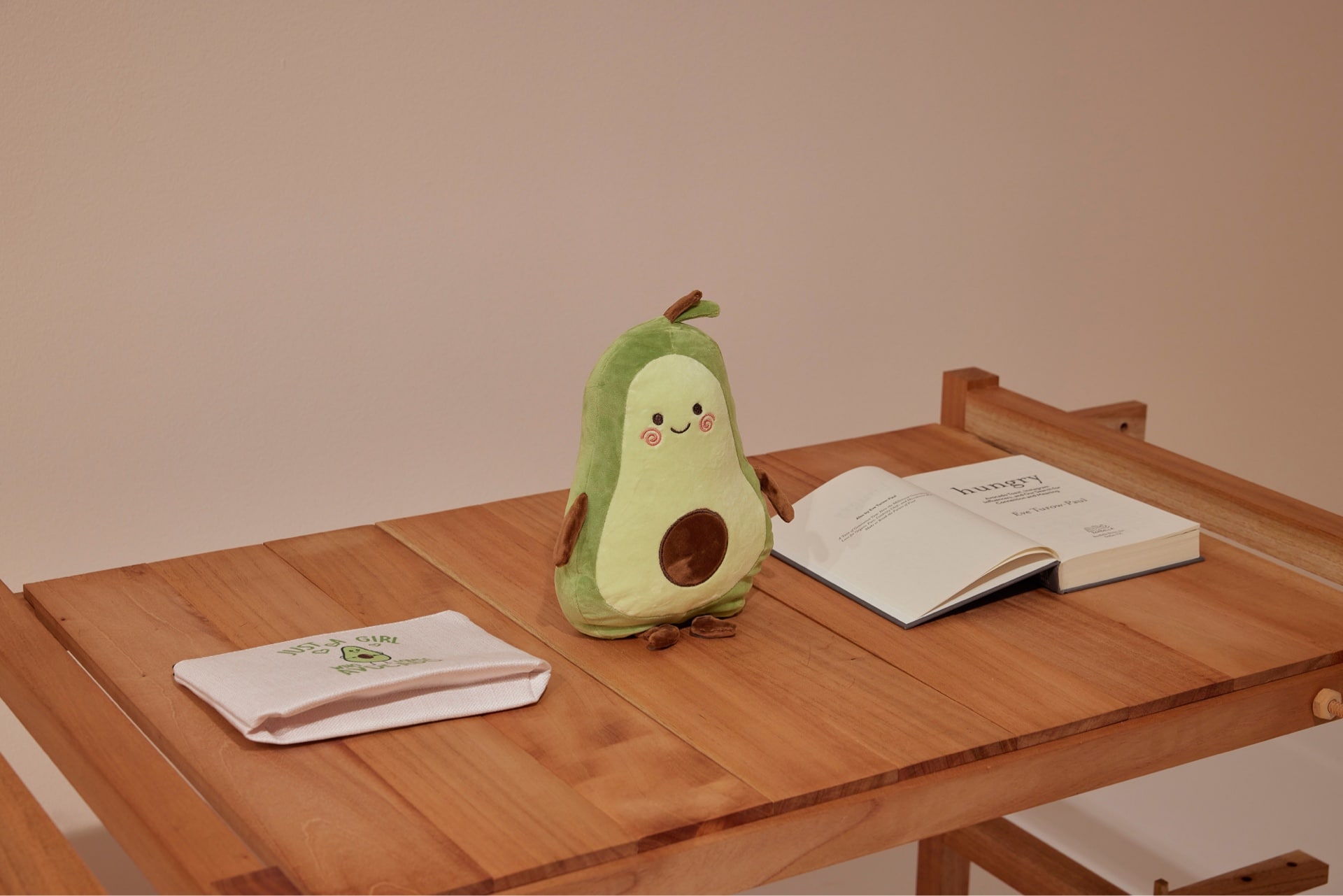Fernando Laposse
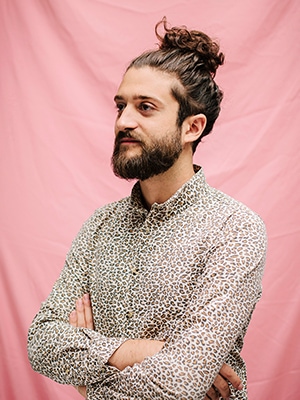
Photo: Kat Green
Fernando Laposse
Mexico born 1988
Level 3
NGV International
View on map
PROJECT
The avocado legacy is a documentary film, produced for Conflict avocados recording firsthand accounts of the impact avocado farming has had in Michoacán, Mexico. A compilation of interviews with women from Cherán, rangers from the El Rosario Monarch butterfly sanctuary, biologists and human rights activists, the documentary foregrounds the voices of those who are directly affected by the avocado trade and are actively resisting the damage being inflicted upon the culture and environment in Mexico. Tracing the supply chain from farming, harvesting and export to consumption, the film confronts viewers with their own position as the consumers who drive demand for avocados, highlighting the injustices that result from the avocado trade are a global phenomenon not isolated to Mexico.
Branch joinery system is a sustainable modular shelving system made only from pruned branches, avoiding the need to fell any trees for its production. Here, the shelf is used to display objects that reflect the disconnect between perceptions that surround avocados in the United States, and the reality of the fruit’s production in Mexico.
On one shelf a chainsaw, pistol and charred heeled shoe reference the deforestation and violence driven by unregulated cartel-controlled avocado farming, while a segment of tree trunk and a collection of Monarch butterflies – the endangered insects that rely on the forests for their survival – are symbolic of widespread ecological damage. In contrast, the adjacent shelf reflects the commercialisation of avocados in the United States. An American football helmet references the mass consumption of avocados during the Super Bowl, while other objects offer a commentary on the marketing and adoption of the avocado as a symbol of health and wealth.
Throughout Conflict avocados, the avocado has been dissected and applied as a design material to spark curiosity about the plant and its place of origin in Mexico. The exterior of Avocado leather cabinet is clad in avocado skin that has been transformed into a tough, finished marquetry. After collecting waste skins from a local guacamole vendor near their studio in Mexico City, designer Fernando Laposse and his team systematically dried, stretched and flattened the avocado skins and fashioned them into a repeated tile, protecting the edges of each with a fine walnut timber frame. The scale of the marquetry pattern has a direct relationship to the properties of the material it is made from. Rather than decoupling materials from their origin as is often the case in contemporary production, Laposse is deliberate in making sources legible.
Commemorating the legacy of environmental activist Homero Gómez González, whose murder was tied to his work protecting the habitat of the Monarch butterfly from illegal logging in Mexico, Resting place memorialises the human casualties of targeted violent crime in the region. Embellished with small, embroidered symbols the patchwork represents an act of repair, and the designer’s desire to contribute to healing the violence and devastation associated with the avocado. There’s a belief in Michoacán that the Monarch butterflies are the visiting souls of deceased relatives because their migratory patterns coincide with the Mexican Day of the Dead. As such, the pink avocado dyed fabric is accompanied by yellow fabric dyed using marigolds, which are the traditional flowers of the Day of the Dead.
ABOUT
Born in 1988, Fernando Laposse studied design at Central Saint Martins, London. In his work Laposse transforms culturally significant natural materials into design pieces that communicate the characteristics of the material used, as well as its historical and cultural ties to a particular location and its people. He has worked extensively with overlooked plant fibres such as sisal, loofah and corn leaves and often collaborates with local communities in his native Mexico to confront the challenges they face in a globalised world.
Commissioned by the National Gallery of Victoria, Melbourne. Purchased with funds donated by The Andrew and Geraldine Buxton Foundation, 2023
This artist has been supported by the Elizabeth Summons Grant in Memory of Nicholas Draffin
Proudly supported by Principal Partner Mercedes-Benz
